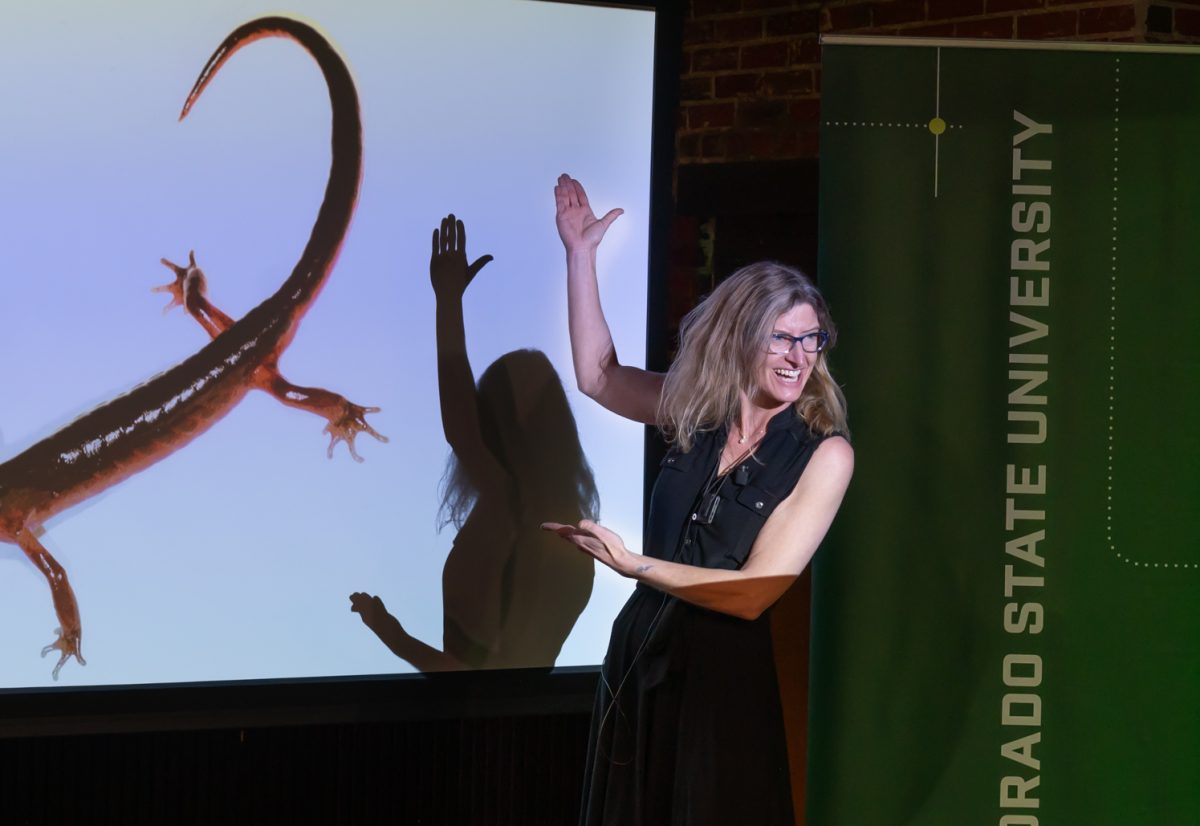Editor’s Note: This story has been updated to reflect ongoing protests at Colorado State University. It will be updated with ongoing details.
Protests against the ongoing Israel-Hamas war continued May 1 on the Lory Student Center Plaza just two days after protesters hand-delivered a formal letter of demands to university administration April 29.
The demonstration, characterized by the Colorado State University chapter of Students for Justice in Palestine as “a peaceful demonstration to put pressure on the university to reconsider its financial partnerships,” intends to remain in accordance with CSU’s freedom of speech and assembly guidelines, which prohibit permanent encampments on university grounds.
Representatives from SJP claimed recent discussions with CSU President Amy Parsons have been unsuccessful in encouraging the university to divest from all pro-Israel corporations, prompting further demonstrations that, organizers said, will continue until their demands are met. In an effort to stay within CSU and Fort Collins regulations, organizers plan to disperse by 7 p.m. and resume at 7 a.m. tomorrow.
An SJP organizer who only provided their first name, Tarik, said they believe that continued, peaceful pressure in accordance with university safety guidelines will force CSU administration to take an official stance on the conflict.
“We have chosen to demonstrate in this manner to continue our support and demonstration and to show, daily, our demands to the university within the guidelines that the university has laid out,” Tarik said.
Unlike the April 29 protest, community members were limited to The Plaza and echoed common phrases of protest, including, “From the river to the sea, Palestine will be free,” and, “Long live intifada.” Numerous protesters also stood under an awning in front of the Associated Students of CSU senate chambers, where a bill calling for a ceasefire has yet to be signed by ASCSU President Nick DeSalvo.
Later in the afternoon May 1, protesters organized a “die-in,” which saw dozens of protesters lie silently on the ground to symbolize the rising death toll in Gaza.
Several students donning Israeli flags stood nearby in counter-protest. Speakers playing Israeli music were also employed in an attempt to drown out the other demonstrators.
“I don’t know how these people who want a ceasefire are calling for another genocide,” a student who did not provide a name said. “If they want to protest, then we also have every right to protest.”
Another student claimed that Jewish voices were not adequately accounted for in discussions with CSU administration, citing frequent interruptions from pro-Palestinian demonstrators.
CSU student and SJP organizer Ella Smith refuted claims that protests against Israel are antisemitic.
“I am a Jewish individual, and I think the fact that there have been comments from different groups on campus claiming that we are antisemitic is completely ridiculous,” Smith said. “My Jewish identity necessitates that I fight for the people of Palestine.”
As the rain cleared and the demonstration continued, several CSU students voiced their stance on the ongoing protests.
“I completely support these people because (the conflict) is genocide,” a student who did not provide a name said. “This is more of a humanitarian crisis than it is to do with war.”
Another student, who also wished to remain anonymous, was less enthusiastic.
“I feel like there’s a lot of political movement for the sake of wanting to be a part of a political movement,” they said. “I feel like our generation has been looking for its movement that they get to be a part of.”
Daily demonstrations are expected to continue until an agreement with CSU administration is reached.
As the temporary camp moved into its fourth full day of protest, SJP organizers claimed recent deliberations with Parsons were unsuccessful in convincing administration to divest and call for a ceasefire. Organizers then declined an invitation for further discussion from Parsons, citing disingenuous intentions that do not align with SJP’s objectives.
CSU administration continues to encourage a cordial, facilitated dialogue between SJP and Jewish student groups. SJP organizers said this was a blatant attempt to weaken the ceasefire movement and paint the organization in a negative light for refusing the meeting.
“We feel as though the office of the president is trying to railroad us into this meeting as a public relations stunt for her office to appear as though she’s facilitating some amazing dialogue that no other president in the country has been able to do” Tarik said.
With many students inundated with finals preparation, SJP delivered several “community letters of disappointment” to CSU administration May 6 in response to Parsons’ repeated attempts to facilitate an educational dialogue between SJP and student groups supporting Israel. Smith reinforced SJP’s stance on the matter and claimed friendly dialogue is impossible and unnecessary.
Smith also commented on ASCSU’s recent unanimous decision to pass legislation calling for a ceasefire and urged Parsons to reconsider her decision to remain neutral as Israeli forces continue to fire on civilian areas.
“We are waiting for (Parsons) to follow in the footsteps of her students and her student government, … which she claims to work very closely with,” Smith said. “Now that Israel is actively engaging in bombing Rafah, which is a safe zone that they designated, we think it is even more important that she puts out a statement.”
To emphasize SJP’s disappointment with Parson’s inaction, protesters marched from The Plaza to the Administration Building May 9, chanting messages including, “Who did our endowment kill today?” and, “There is only one solution: intifada revolution.” Demonstrators also left several pillows wrapped in red-stained cloth to mimic body bags, tattered children’s toys and white flags, each representing 100 or more civilian deaths to punctuate their message.
Smith addressed the crowd from the steps of the administration building and denounced the university for its complicity.
“CSU is actively complicit in this genocide with the money it makes from its endowment and with its silence,” Smith said. “Today, we remind them they have blood on their hands.”
Editor’s note: This story has been updated to reflect a change in verbiage from “lie-in” to “die-in” and to report on the protests of May 9.
Reach Sam Hutton at news@collegian.com or on Twitter @CSUCollegian.














































